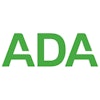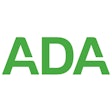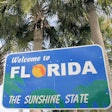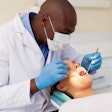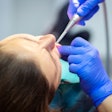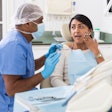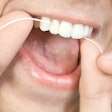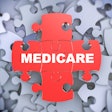Parents of children getting dental service under the U.S. government Children's Health Insurance Program (CHIP) may have to pay up to 5% of their family income, the program's director said this month.
The rule came in an October 9 letter from Cindy Mann, director of the U.S. Center for Medicaid and State Operations to state health officials providing guidance about how to implement the new dental aspects of the program.
Under CHIP, the federal government provides funds to states that offer health insurance to children whose families earn between 100% and 200% of the federal poverty level: $22,000 to $44,000 for a family of four. The program is intended for children whose families are too wealthy to qualify for Medicaid but too poor to afford private insurance. States have to provide some of the funds, but they could design their own programs within federal guidelines.
In a previous incarnation of the program (known as SCHIP), states were not required to provide dental benefits at all. As reauthorized Feb. 4, the program requires states to offer dental care not only to those children who have no health insurance at all, but also to those who have some health insurance without dental benefits.
Specifically, the law requires "coverage of dental services necessary to prevent disease and promote oral health, restore oral structures to health and function, and treat emergency conditions."
The following categories must be included, Mann said, referring to the ADA's Current Dental Terminology (CDT) codes:
1. Diagnostic (i.e., clinical exams, x-rays) (CDT codes: D0100-D0999)
2. Preventive (i.e., dental prophylaxis, topical fluoride treatments)
3. Restorative (i.e., fillings, crowns) (CDT codes: D2000-D2999)
4. Endodontic (i.e., root canals) (CDT codes: D3000-D3999)
5. Periodontic (treatment of gum disease) (CDT codes: D4000-D4999)
6. Prosthodontic(dentures)(CDT codes: D5000-D5899, D5900-D5999, and D6200-D6999)
7. Oral and Maxillofacial Surgery (i.e., extractions of teeth and other oral surgicalprocedures) (CDTcodes: D7000-D7999)
8. Orthodontics (i.e., braces) (CDT codes: D8000-D8999)
9. Emergency Dental Services
Families may have to pay "cost sharing," including premiums, co-payments, deductibles or co-insurance, but not for "routine preventive and diagnostic dental services (such as oral examinations, prophylaxis and topical fluoride applications, sealants, and x-rays) as described in the most recent guidelines issued by the AAPD [American Academy of Pediatric Dentistry]."
The cost sharing may not total more than 5% of family income. Medical and dental copayments must be combined for the purpose of determining the 5%. But states can portion out the cost sharing as they see fit, potentially charging for dental and not medical services, or vice versa.
Copyright © 2009 DrBicuspid.com



